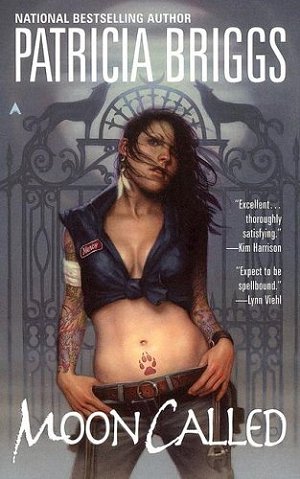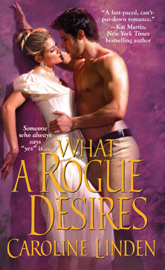 After my failed attempt to read A Magic of Twilight (boo, hiss), I decided something a little less epic fantasy and a little more towards the romance end of the spectrum would perhaps be more suitable. Since I enjoyed the Raven Duology so much, I settled on another of Patricia Briggs’ books that I haven’t read, Moon Called.
After my failed attempt to read A Magic of Twilight (boo, hiss), I decided something a little less epic fantasy and a little more towards the romance end of the spectrum would perhaps be more suitable. Since I enjoyed the Raven Duology so much, I settled on another of Patricia Briggs’ books that I haven’t read, Moon Called.
This is the first in a pretty standard ‘hidden world’ paranormal series; it takes place in modern times, but there are supernatural creatures living alongside (or with) humans that the majority of the world’s population are not aware of. In this case, the humans are aware of at least one supernatural population, the fae, though in this book that is mainly background information.
Vampires, werewolves and witches… oh, my…
Merecedes Thompson is your regular everyday small-town mechanic. Who happens to be a skinwalker – based on the Native American legend of shaman who could turn into animals – and lives next door to the Alpha of the local werewolf pack. Did we mention that Mercy was raised by werewolves, and her former-employer, still-friend Zee is a fae metalwright? Let’s not forget the vampire with the Mystery Machine van and the Scooby Doo ringtone…
Battling the paranormal is not Mercy’s usual style, but when a new teen werewolf in town leads to her neighbour being attacked and his teenage daughter kidnapped, she finds herself getting involved in some kind of crazy scheme to… well, no one’s sure quite yet, but it’s bound to be Bad. A trip back home to the town she grew up in – the home of the biggest, baddest werewolf in North America, who just happens to be the father of her childhood sweetheart – goes less than brilliantly, particularly when said sweetheart ends up tagging along with Mercy and werewolf Alpha Adam on their quest to find Adam’s missing daughter. A quest that is becoming more complicated by the minute…
It is, quite frankly, nice to find a heroine in a paranormal tale who isn’t a vampire, witch or werewolf. Or two or more of the above (Jaye Wells, I’m looking at you). Even if she does still have a ‘special’ element, being the only walker that she knows of apart from her long-deceased father, and the only walker a lot of people have ever met. Despite this, Mercy seems fairly practical and relatable. At least in the start of the book.
Moon Called is the first in a series, and it does show. The major plotlines in the book are wrapped up by the end of it, but a lot of the characters still feel fairly flat and unsympathetic. Hopefully this will be resolved with character development in the following books. There are some nice little touches here and there to give life – metaphorically speaking, in some cases – to the minor characters that seem to be oddly lacking in some of the main characters. It amused me to find out that Marsilia reads in the same position that I do; this little note made me relate to her a bit, which made the fact that her ‘humanity’ is just an act a little more jarring than it was for certain others (yay vagueness from trying not to provide too many spoilers).
One of the problems that I had in this book was that it seems to fall into the same problem that every other ‘paranormal’ story I’ve come across has – Everyone Wants To Do The Heroine! This is more pronounced in the second book than the first, but for someone who claims she’s not very attractive, Mercy seems to receive an awful lot of male attention.
And speaking of male attention, have I mentioned yet that I hate love triangles? Because I do. I really, really do. Particularly when you know that there’s no chance they’re going to end up in a triad or a polyamorous relationship. And these love triangles (or polyhedrons, in some cases) are everywhere in paranormal fantasy/paranormal romance! I will refrain from complaining any more about that, because there’s probably enough fodder in my burning hatred for love triangles to earn its own post at some point.
But there is a love triangle. Which I could see as soon as the third person was introduced. Argh.
I liked the interaction between Mercy and Adam, regardless of the will they/won’t they aspect of the relationship. I did not like Mercy’s interaction with childhood sweetheart Sam, who came across as condescending and disrespectful of the fact that Mercy is no longer a love-sick teenager. Quite frankly, I can’t see any of the positive qualities that Mercy seems to see in him, he was useless for much of the book, and I pretty much feel that he should have just stayed at home. YMMV.
Other than the issues that I’ve mentioned, I didn’t have any big problems with this book. There’s no sex, so anyone looking for sex scenes will be disappointed, and there isn’t very much romance. Some of the characters need more development, which is a common problem with novels intended to be the first of a series. I hate love triangles. The vampires are not sparkly.
Overall, this book is a good, light paranormal fantasy that can be read on its own or as the first in a series. The author’s paranormal universe is interesting, and hopefully she will take it to interesting places and provide more information and detail as the series advances. Recommended.








 After my failed attempt to read
After my failed attempt to read 









